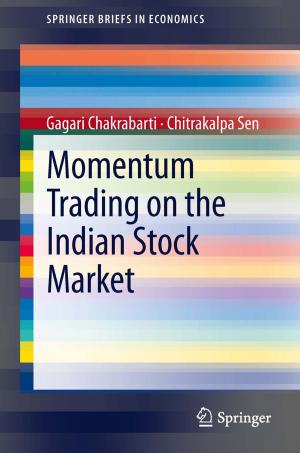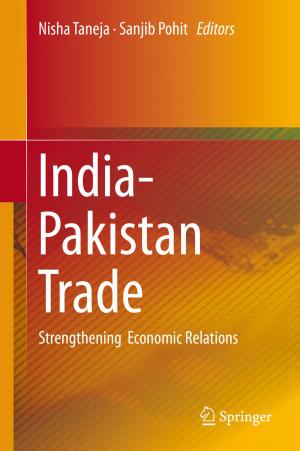Analytical Issues in Trade, Development and Finance
Essays in Honour of Biswajit Chatterjee
Business & Finance, Economics, International Economics, Macroeconomics| Author: | ISBN: | 9788132216506 | |
| Publisher: | Springer India | Publication: | July 8, 2014 |
| Imprint: | Springer | Language: | English |
| Author: | |
| ISBN: | 9788132216506 |
| Publisher: | Springer India |
| Publication: | July 8, 2014 |
| Imprint: | Springer |
| Language: | English |
The book’s 30 chapters are divided into three sections – international trade, economic development, macroeconomics and finance – and focus on the frontier issues in each.
Section I addresses analytical issues relating to trade-environment linkage, capital accumulation for pollution abatement, possibility of technology diffusion by multinational corporations, nature of innovation inducing tariff protection, effects of import restriction and child labour, the links between exchange rate, direction of trade and financial crisis—the implications for India and global economic crisis, financial institutions and global capital flows and balance of payments imbalances.
Section II consists of discussions on the causes of widespread poverty persisting in South Asia, development dividend associated with peace in South Asia, issues of well-being and human development, implications for endogenous growth through human capital accumulation on environmental quality and taxation, the rationale for a labour supply schedule for the poor, switching as an investment strategy, the role of government and strategic interaction in the presence of information asymmetry, government’s role in controlling food inflation, inter-state variations in levels and growth of industry in India, structural breaks in India’s service sector development, and the phenomenon of wasted votes in India’s parliamentary elections.
Section III deals with the effectiveness of monetary policy in tackling economic crisis, the effective demand model of corporate leverages and recession, the empirical link between stock market development and economic growth in cross-country experience in Asia, an empirical verification of the Mckinnon-Shaw hypothesis for financial development in India, the dynamics of the behaviour of the Indian stock market, efficiency of non-life insurance companies, econometric study of the causal linkage between FDI and current account balance in India and the implications of contagious crises for the Indian economy.
The book’s 30 chapters are divided into three sections – international trade, economic development, macroeconomics and finance – and focus on the frontier issues in each.
Section I addresses analytical issues relating to trade-environment linkage, capital accumulation for pollution abatement, possibility of technology diffusion by multinational corporations, nature of innovation inducing tariff protection, effects of import restriction and child labour, the links between exchange rate, direction of trade and financial crisis—the implications for India and global economic crisis, financial institutions and global capital flows and balance of payments imbalances.
Section II consists of discussions on the causes of widespread poverty persisting in South Asia, development dividend associated with peace in South Asia, issues of well-being and human development, implications for endogenous growth through human capital accumulation on environmental quality and taxation, the rationale for a labour supply schedule for the poor, switching as an investment strategy, the role of government and strategic interaction in the presence of information asymmetry, government’s role in controlling food inflation, inter-state variations in levels and growth of industry in India, structural breaks in India’s service sector development, and the phenomenon of wasted votes in India’s parliamentary elections.
Section III deals with the effectiveness of monetary policy in tackling economic crisis, the effective demand model of corporate leverages and recession, the empirical link between stock market development and economic growth in cross-country experience in Asia, an empirical verification of the Mckinnon-Shaw hypothesis for financial development in India, the dynamics of the behaviour of the Indian stock market, efficiency of non-life insurance companies, econometric study of the causal linkage between FDI and current account balance in India and the implications of contagious crises for the Indian economy.















